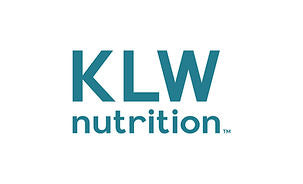28 types of collagen types have been identified and these different types of collagen vary by how the molecules are assembled, the cell components, which are included and where the collagen is utilised in your body. One thing they have in common though is that ALL collagen fibrils have at least one triple helix structure.
However, there are 5 main types of collagen:
- Type I - makes up 90% of your body’s collagen and provides structure to your skin, bones, tendons and ligaments.
- Type II - found in elastic cartilage, which provides joint support.
- Type III - found in muscles, arteries and organs.
- Type IV - found in the layers of your skin.
- Type V - found in the cornea of your eyes, skin, hair and placenta tissue.
So, the question 'What is the best type of collagen?' really depends on what your individual needs and requirements are!
Collagen is the most abundant protein in our body, making up 33% of our bodies' mass. It is present in joints, bones and muscles as well as other connective tissue like tendons (attaches muscles to bone) and ligaments (attaches bones to bones). It is like a glue holding our bodies together!
In fact, collagen comprises about 60% of cartilage (the tissue that surrounds bones and cushions them from the impact of high-impact exercise) so a reduction in collagen could lead to a loss of cartilage and joint problems.
Additionally, by the age of 40 we lose approximately 30% of our natural collagen, so most of us may need some extra help. I certainly have benefitted from supplementing with my collagen drink every morning in numerous ways - my skin looks way better and my knees and Achilles tendon no longer hurt if I jog three times a week for 20 minutes!
Also, a study published in the Journal of Applied Physiology and Nutrition found that not only does collagen help prevent joint pain, but it may also be helping keep our immune system balanced and strong, as well as promoting our athletic performance.
The study assigned athletes randomly to two different groups, one that supplemented with collagen, and the other that had a placebo. The authors concluded that those supplementing with collagen had increased mobility in their joints and less pain compared with those who had the placebo.
So how do you know if you need to supplement with collagen?
Collagen can’t be measured but you may be experiencing symptoms that indicate that your collagen level may be getting less. Some of the frequent symptoms people experience are:
- wrinkles appearing and skin appearing 'saggy
- muscle weakness
- muscle aches
- join pain
- reduced joint mobility
- osteoarthritis due to worn-away cartilage
- less flexible tendons and ligaments
- gastrointestinal issues due to the lining of the GI tract (gastrointestinal tract) becoming thin
- issues with blood flow.
Also, autoimmune diseases (your body’s immune system attacks its own tissue) can damage collagen. Some of these conditions include lupus, Rheumatoid arthritis (RA), and scleroderma.
Collagen can’t be absorbed by your body in its whole form, but your body breaks down the collagen proteins you eat into something known as amino acids (building blocks of protein). So eating collagen-rich foods doesn’t directly result in higher collagen levels in your body. However, many foods that provide nutrients, which support collagen production can be included in your diet. These foods contain the amino acids proline and glycine, and Vitamin C, zinc and copper are also needed to support collagen production.
As mentioned earlier, collagen can’t be absorbed in a whole form - it has to be broken down into smaller peptides or amino acids to be absorbed. Oral collagen supplements come in several different forms such as powders, tablet or liquid form. You may seem them described on labels as hydrolysed collagen or collagen peptides and collagen peptides after gastrointestinal digestion, are absorbed by our intestinal mucosa, then pass through the liver and into the peripheral blood.
Randomised controlled trials (RCTs) are the gold standard when it comes to scientific evidence and RCTs have found that collagen supplements improve skin elasticity [1,2] and can improve joint mobility and reduce joint pain such as with osteoarthritis or in athletes [3].
References
[1] Proksch E, Segger D, Degwert J, Schunck M, Zague V, Oesser S. Oral supplementation of specific collagen peptides has beneficial effects on human skin physiology: a double-blind, placebo-controlled study. Skin pharmacology and physiology. 2014;27(1):47-55.
[2] Kim DU, Chung HC, Choi J, Sakai Y, Lee BY. Oral intake of low-molecular-weight collagen peptide improves hydration, elasticity, and wrinkling in human skin: a randomized, double-blind, placebo-controlled study. Nutrients. 2018 Jul;10(7):826.
[3] Bello AE, Oesser S. Collagen hydrolysate for the treatment of osteoarthritis and other joint disorders: a review of the literature. Current medical research and opinion. 2006 Nov 1;22(11):2221-32.

